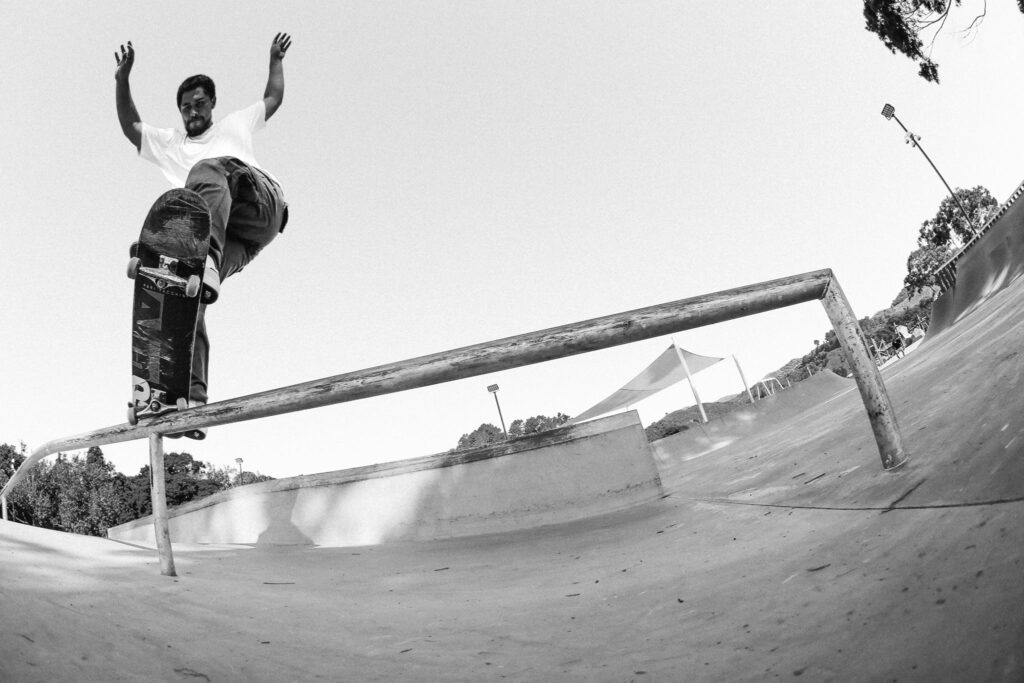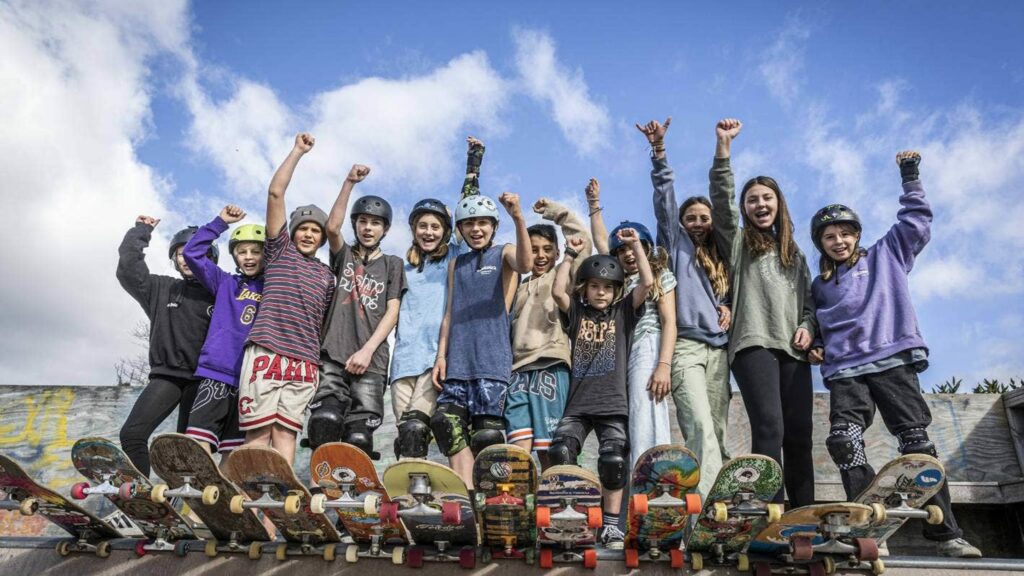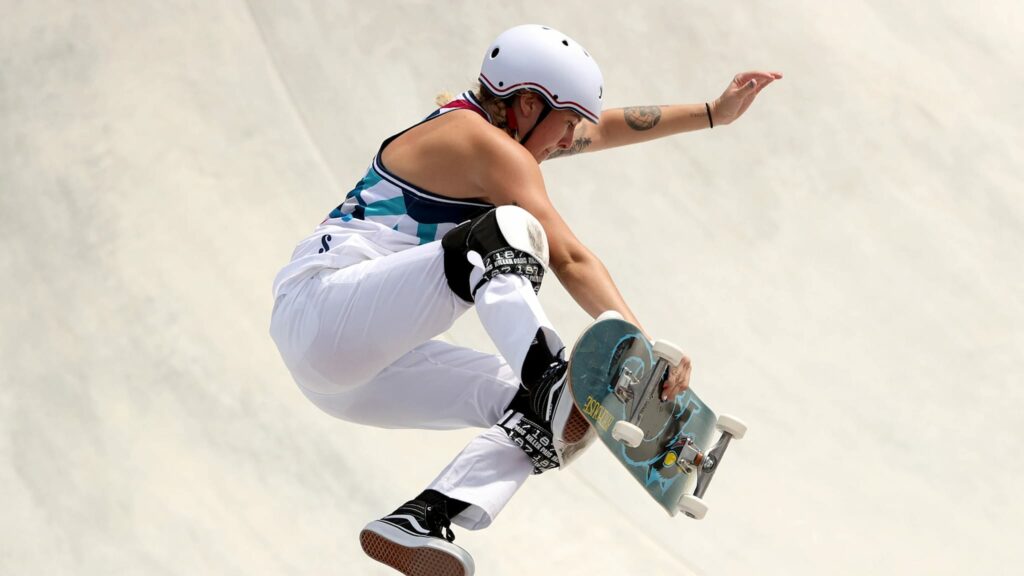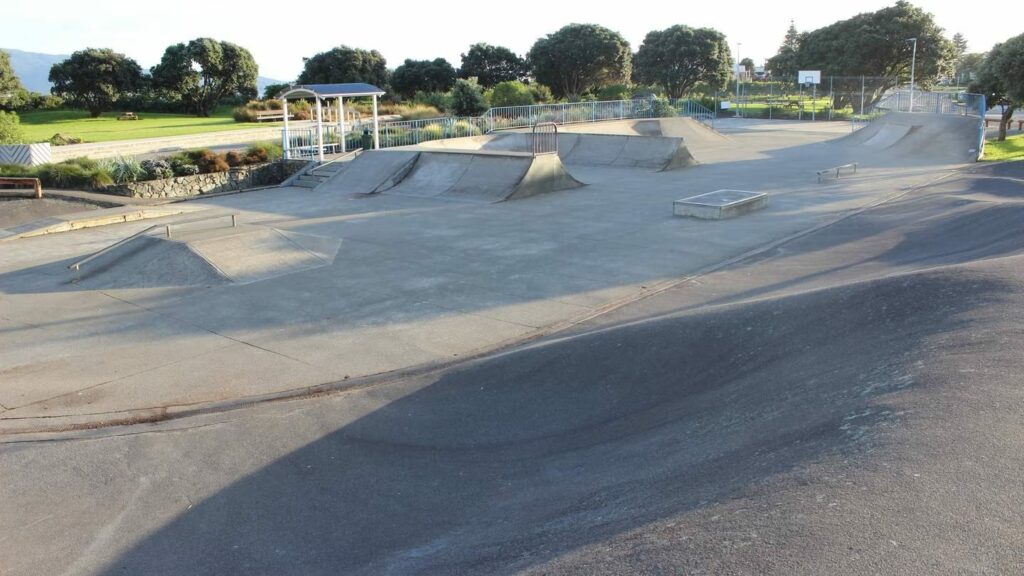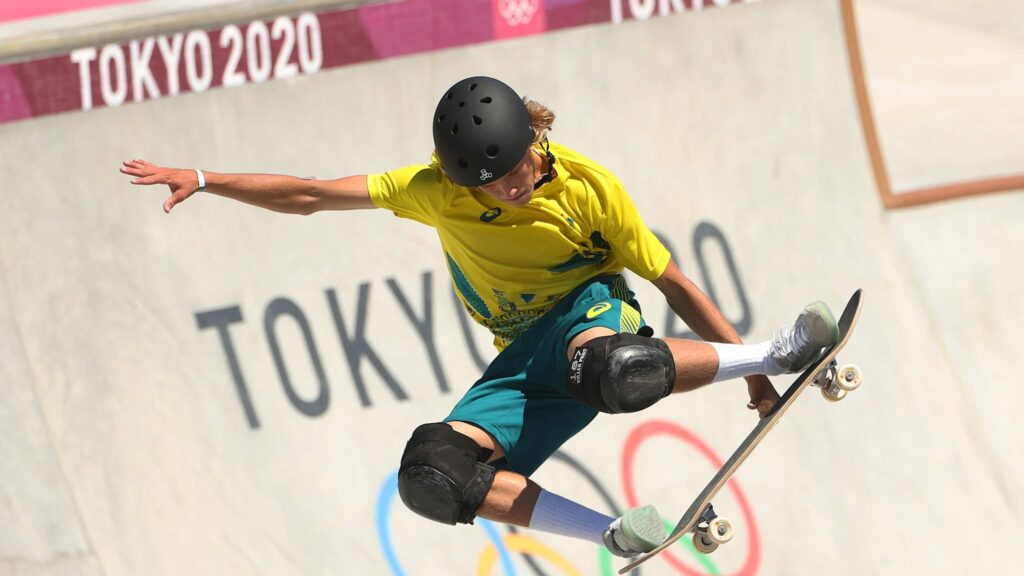
Silver-Haired Skateboarders: Shredding the Age Barrier

Image – Stuff
Rob Cherry, 57 loves skateboarding, even if he has been called an old man skateboarding.
Riding a skateboard with a head of silver hair, laughter lines, or even a dad bod should be a normal sight, but sometimes it tends to draw curious glances.
“I overheard a young child say, ‘Look mum, that’s an old man skateboarding!'” shared Rob Cherry, who is among several New Zealanders in their 40s and 50s who actively engage in skateboarding, surfing, or snowboarding.
Cherry, now 57, was in his 40s when he had this memorable encounter with a toddler and her mother. “I was feeling pretty confident about myself,” he recounted, “but that comment brought me back to reality.”
However, such remarks did not deter Cherry. In fact, he recently made the switch from his traditional skateboard to an electric one, using it as a fun mode of transportation from time to time.
And he’s not alone in embracing these activities.
Dr. Nick Maitland, a lecturer in health at the University of Canterbury, has been a skateboarder since the mid-1980s, deeply immersed in skateboarding culture. However, as he grew older, he couldn’t help but notice a sense of isolation at the skate park.

Image – Stuff
Skateboarding is Cherry’s happy place as he rides the streets of Wellington.
“I started to realise that there didn’t seem to be anyone else like me,” he explained.
This feeling of not fitting in prompted him to embark on a “passion project” to explore the experiences of 12 individuals over the age of 40 who continue to skateboard, surf, and snowboard, activities typically associated with youth.
Maitland’s research aimed to uncover why these individuals still pursue these sports and how their experiences have evolved.
He pointed out that people are drawn to these sports in their youth because they seek freedom and an escape from the constraints, expectations, measurements, and parental oversight of structured life.
“Skate parks, oceans, and mountains—they still represent the same thing: a way to break free from the structured demands of life and its expectations, making them sanctuaries.”

Image – Stuff
Dr Nick Maitland is a skateboarder who has recently done research on how middle-aged people experience doing activities generally done by younger generations including skateboarding, snowboarding and surfing.
However, dealing with injuries when you have middle-aged bones and joints can be an isolating experience. Maitland emphasised that “there is no lonelier place on earth than the bottom of a bowl after a painful fall.”
He shared his own experience of a recent fall at a skate park, where the pain was compounded by the concern of a 12-year-old on a scooter asking, “Hey mister, are you okay?”—a stark reminder of one’s age.
Maitland stressed that after turning 40, significant injuries aren’t just about physical recovery; they affect work, parenting, and one’s ability to be a supportive partner—every aspect of life is impacted.
On the other hand, Cherry expressed his love for his electric skateboard, often cruising through the bays of Wellington to the city from his home.
“For me, it’s like riding an endless wave,” he enthused.
Despite skateboarding for most of his life, Cherry was inspired to try an electric skateboard when he saw someone else having a blast on one.
“I feel great about it, even though I had a run-in with a car. I adore it.”
However, late last year, Cherry’s euphoria was temporarily halted when he was involved in an accident. “I was having the time of my life on the streets,” he recalled. “I thought, ‘This is the best thing I’ve ever done for myself in my whole life.’ Five minutes later, I was unconscious on the road.”

Image – Stuff
Getting hit by a car while riding over a pedestrian crossing hasn’t shaken Cherry’s will to skate.
He had been hit by a car while crossing a pedestrian crossing, which resulted in him being knocked out and sustaining a shoulder injury.
Cherry took a month off from his job as an art installer to recover from the injury. But now, he’s back on his preferred ride, being “just a bit more cautious.”
“I want to keep doing it for as long as possible,” Cherry affirmed.
Maitland plans to present his research findings in a free public talk at the University of Canterbury on May 10, where he will discuss how these lifestyle sports continue to offer meaning and excitement in middle age. These activities are not only effective for coping with stress but also contribute significantly to overall well-being.
Drawing from personal experience and the insights of those he interviewed, Maitland emphasised that there’s a unique sense of enjoyment and identity associated with these sports that can’t be found elsewhere.
“People who engage in these activities simply can’t imagine life without them,” he concluded.


